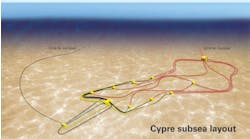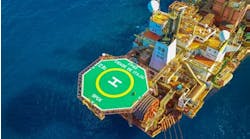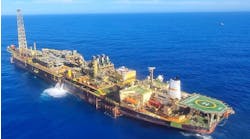NOD calls for exploration ramp-up offshore Norway
The Norwegian Offshore Directorate (NOD) predicts that Norway’s offshore oil and gas production will start to decline after 2025.
For this reason, “we'll need to ramp up exploration and investment in fields, discoveries and infrastructure moving forward in order to slow the decline in production," said Kjersti Dahle, director technology, analysis and coexistence. “A failure to invest will lead to rapid dismantling of the petroleum industry."
The NOD has drawn up three potential scenarios for production of oil and gas in the run-up to 2050, all of which suggest a decline in production. The steepness of that decline will depend on factors such as future exploration activity and technological development.
"The scenarios reveal stark differences in future value creation and future government revenues from the petroleum activities,” Dahle said. “The Norwegian Offshore Directorate's calculations show a difference in net cash flow of about NOK15,000 billion between the high and low scenarios."
To sustain the level of activity and production over time, she added, the industry would have to explore for more resources, both close to infrastructure and in more frontier areas.
Improved knowledge, better data coverage, new work methods and emerging technologies could all help open new exploration opportunities, leading to more profitable discoveries in the years ahead, she added.
The NOD's analysis of exploration activity for oil and gas on the Norwegian Continental Shelf over the past two decades has generated more than NOK2,000 billion (net present value). The total value arising from discoveries is more than three times the investment cost of exploration during the same period.
"Norway and the NCS are still in a prime position to remain a competitive producer of oil and gas for many years to come, because we have substantial remaining resources, low emissions, well-developed infrastructure, low operating costs and stable framework conditions," Dahle concluded.



